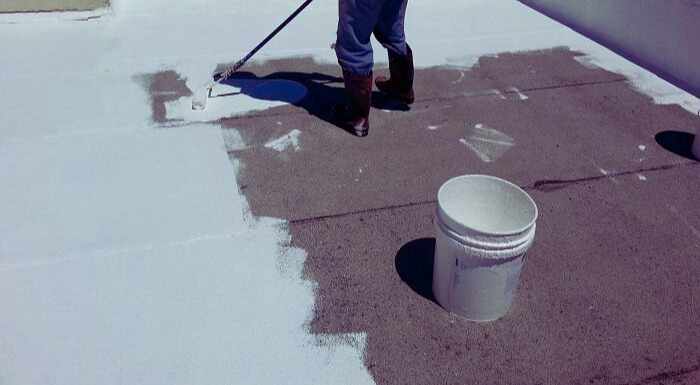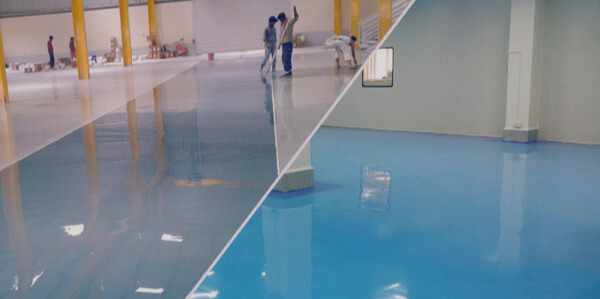
When it comes to protecting your property from water damage, roof deck waterproofing is one of the most critical investments a property owner can make. Whether it's a residential building, commercial structure, or a multi-story apartment complex, the roof deck is exposed to the harshest weather elements year-round. Without proper waterproofing, this area becomes a major entry point for leaks, mold growth, and even structural deterioration.
In this guide, we’ll explain what roof deck waterproofing is, how it works, and why it’s essential for preserving your building’s value, safety, and lifespan.
What Is Roof Deck Waterproofing?
Roof deck waterproofing is the process of applying specialized coatings, membranes, or sealing systems to a roof deck surface to prevent water infiltration. A roof deck typically serves as a usable space—like a terrace, patio, or recreational area—and sits directly above occupied rooms or structures. If not properly sealed, water can penetrate through cracks or joints in the deck, eventually damaging ceilings, walls, insulation, and even electrical systems beneath.
The main goal of roof deck waterproofing is to create a seamless, watertight barrier that protects both the surface and the structure underneath. It’s a critical step in both new construction and building restoration.
Why Roof Deck Waterproofing Is Essential
1. Protects Structural Integrity
Water is one of the most damaging forces to any building material. Without proper roof deck waterproofing, water seeps into concrete slabs, corrodes steel reinforcements, and causes wood to rot. Over time, this weakens the entire structural system. A professionally installed waterproofing system prevents this by blocking moisture at the surface level, protecting the integrity of your building.
2. Prevents Mold and Health Hazards
Moisture trapped beneath a roof deck can lead to mold, mildew, and bacterial growth. These contaminants are not only unsightly but also harmful to health, particularly for individuals with allergies or respiratory issues. Effective roof deck waterproofing ensures a dry environment, preventing the formation of mold and improving indoor air quality.
3. Enhances Energy Efficiency
A waterproofed roof deck can contribute to better insulation and indoor climate control. Many waterproofing systems also offer UV resistance, helping reflect sunlight and reduce heat absorption. This improves the building’s overall energy efficiency, cutting down on cooling costs—especially in warmer climates.
4. Extends the Lifespan of the Roof Deck
Proper roof deck waterproofing significantly increases the life of your deck by protecting it from thermal expansion, freeze-thaw cycles, and UV exposure. These environmental factors can cause materials to crack, warp, or degrade over time. Waterproofing acts as a shield, minimizing these effects and extending the service life of your investment.
5. Boosts Property Value
Buildings with well-maintained and usable outdoor spaces—such as waterproofed rooftop patios or terraces—command higher market value. Waterproofing not only preserves the condition of the roof deck but also makes it a safer and more appealing space for use. When you invest in roof deck waterproofing, you add both function and resale value to your property.
6. Meets Building Codes and Safety Standards
Most local building codes require waterproofing for roof decks, especially when they are above habitable areas. Failure to comply can lead to code violations, insurance issues, and expensive retrofits. Ensuring proper roof deck waterproofing helps you stay compliant and avoid legal or financial setbacks.
Common Roof Deck Waterproofing Systems
There are several waterproofing methods used, depending on the structure, climate, and usage:
Liquid-Applied Membranes – These are seamless, flexible coatings made from polyurethane, acrylic, or rubber. They are ideal for irregularly shaped decks.
Sheet Membranes – Made from materials like modified bitumen or PVC, these are rolled out and bonded to the surface. They are durable and commonly used in large commercial applications.
Cementitious Coatings – Used mostly in industrial or utility areas, these are rigid but cost-effective.
Cold-Applied Bitumen – A popular choice for decks that need both waterproofing and UV protection.
Choosing the right roof deck waterproofing system depends on surface type, expected foot traffic, and exposure to weather elements. A professional assessment is recommended for optimal results.
Key Considerations Before Waterproofing
Before beginning any roof deck waterproofing project, it’s crucial to evaluate several factors:
Surface Preparation: The deck must be clean, dry, and free from cracks or contaminants for the waterproofing system to adhere effectively.
Slope and Drainage: A properly sloped deck ensures water doesn’t pool, which could lead to leakage or coating failure.
Material Compatibility: Some waterproofing systems are better suited for concrete, others for plywood or metal. Choose one that complements your deck surface.
Professional Installation: DIY attempts often lead to incomplete sealing and early failure. Hire experienced professionals to ensure long-lasting, leak-proof protection.
Maintenance Tips for a Waterproof Roof Deck
Once installed, your roof deck waterproofing system still needs routine care to maximize its effectiveness:
Inspect for surface cracks or blisters annually.
Clear drains and downspouts to prevent water buildup.
Reapply sealants or topcoats as recommended by the manufacturer.
Avoid placing sharp or heavy objects directly on the surface.
With regular maintenance, a quality waterproofing system can last 10–15 years or more.
Final Thoughts: Roof deck waterproofing is not just an add-on—it’s a necessity for any structure that includes a rooftop deck or terrace. From protecting your building’s foundation to preventing costly repairs and enhancing outdoor living spaces, waterproofing delivers long-term benefits. It safeguards your investment, ensures compliance with codes, and adds peace of mind knowing your property is well-protected from the elements.
If you're planning new construction or considering a roof deck renovation, prioritize roof deck waterproofing from the start. A professional, well-executed system will save you money, extend the lifespan of your building, and provide a secure, usable space for years to come.



Write a comment ...